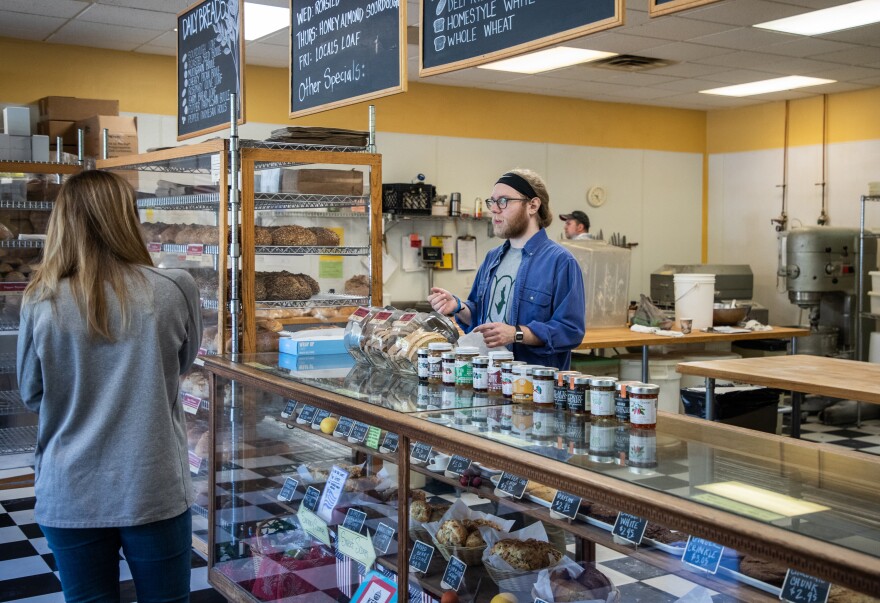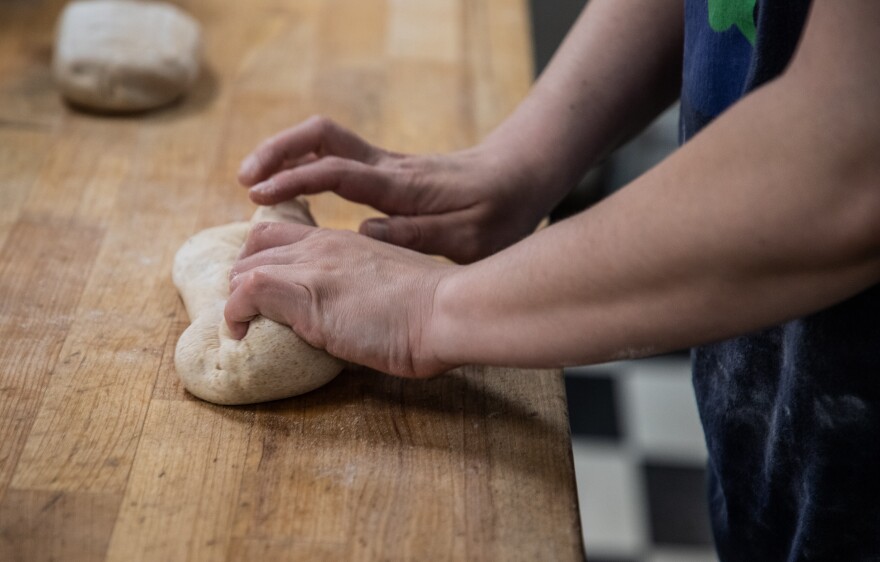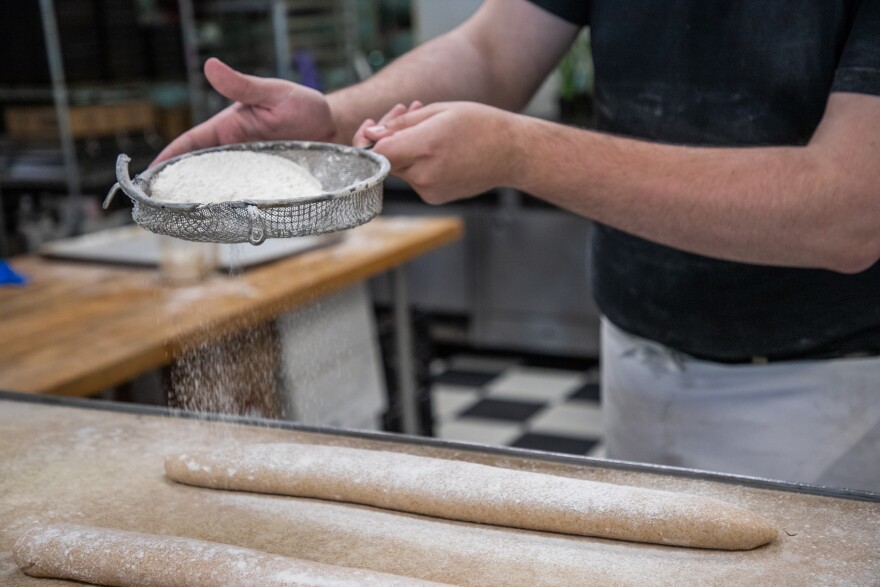It takes a lot of job titles to describe all of what Greg Carpenter does to earn a living. As a bakery owner, he has a lot on his plate. He is a baker, a business owner and general manager.
Twenty-three years ago, he opened the doors of Crooked Tree Breadworks. It was an endeavor that combined his many skills.
“I worked on an assembly line at Ford Motor Company for a summer. I learned how to be efficient with movement on that. I worked as a waiter; got some good people skills there. I’ve worked as a line cook. These are the things that set me up to be a baker,” Carpenter said.
Carpenter earned his undergraduate degree in English from the University of Michigan, something that he said helped him to put together a business plan. He said all of this experience helped to prepare him as a baker and business owner.
“Most of my training was hands on, and that’s, I think, for most good bakers, that’s where it really happens,” Carpenter said. “The theoretical framework that you have when you’re learning to bake is also very important. If you’re armed with that and then you handle thousands of pounds of dough, you’re going to learn to be a good baker.”
Carpenter said he attended the National Baking Center in Dunwoody Institute, and the San Francisco Baking Institute to develop a more formal baking education.
You know how some people say they’ll never use high school math in the “real world”? Carpenter said he uses it every day.
“As a baker you have to work with ratios and percentages, and you have to be very fluent with those without having to stop and think about it. That takes a certain type of brain. Kind of half artist and half scientist,” Carpenter said.
Busy summers and slow winters in Northern Michigan make putting together a good team especially hard; it’s one of the most difficult parts of his job. Every business in the area is looking for employees for the summer, so putting together a team is challenging.
The radically different paces of the seasons makes Carpenter’s job difficult in terms of budgeting as well.
“In the summer season, your main priority is can we make enough bread? But that’s a very short season... There are several other weeks of the year that we still have to get through. The strategy to getting through those weeks is... how are we going to cut costs?” Carpenter said.
He said his typical day will begin at 8 in the morning and he’ll work until around 5 in the afternoon, hopefully making it home for dinner. Carpenter’s days may be longer depending on if he’s needed in production. Sometimes, his day will start at 4 a.m.
Carpenter said he earns about $70,000 a year as a manager of the business. Of course, income depends on business. Tourism affects everything about the Breadworks.

Carpenter said he calls some weeks in the winter “why bother” weeks, knowing that just opening the doors to the Breadworks will lose the business money.
Running a small business in Northern Michigan is stressful, but Carpenter still finds joy in his career. In all the chaos, experimenting is what keeps him going.
“I spend a lot of time at my desk tapping keys on a computer, and that’s not my natural environment. So sometimes I just have to get up, and go out and grab some flour, and grab some ingredients and do something crazy,” Carpenter said.
About five years ago, Carpenter started growing his own wheat with the help of a Petoskey farmer. He said he always questioned where the flour in the 50 pound bags came from, and he wanted to learn more about his craft. He said almost everyone doubted the project.
“The word on the street was, ‘you’re not going to be able to grow wheat in Michigan,’ and that’s a myth. And I decided if there’s a myth out there that could be busted, that’s the one I’m gonna bust,” Carpenter said.
The local loaf is baked fresh every Friday using all local grains from the farm. Carpenter said that growing his own wheat is one of the most challenging yet rewarding parts of his job, and it pushes him to be a better baker.
“It takes all of my skills as a baker to use these local grains. Every field is different, every year’s crop is different. My job is to bring out the best qualities in that wheat,” Carpenter said.

Carpenter has been crafting this job since his business opened, but really, he’s always known that baking is what he’d end up doing. He said as a child, his mother told him that the first thing he said he wanted to be when he grew up was a baker. Carpenter said in 10 years, his job probably won’t be much different.
“I will probably be right here at the helm of the Breadworks,” Carpenter said. “I love what I do, I love this job very much. I’ve created this job over 23 years, and it’s a job that fits me perfectly.
Carpenter said his job might evolve, taking over more of a marketing and managerial role in the future, but he said he said that 10 years ago, too. Out of the many hats he wears, ultimately, his baking hat is his favorite.

